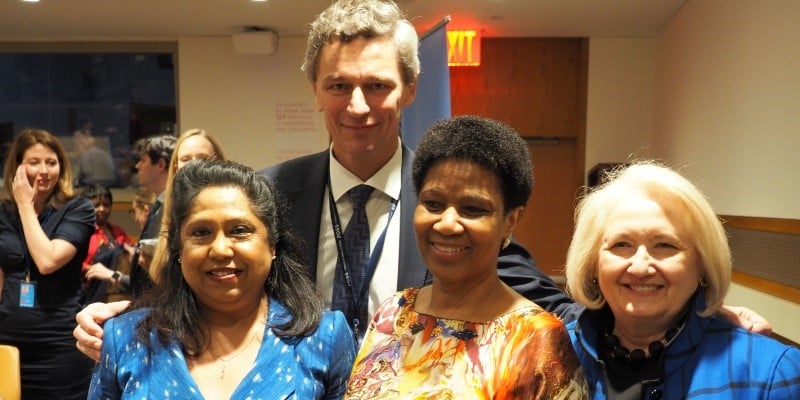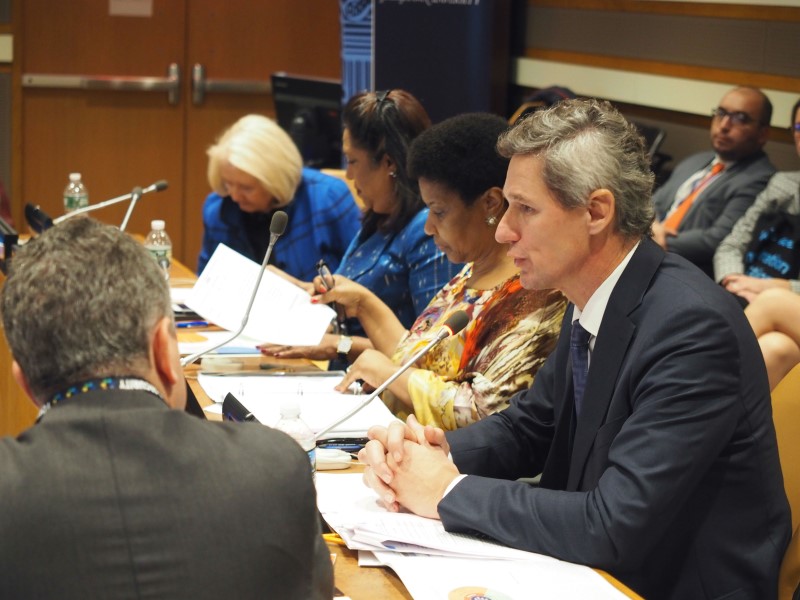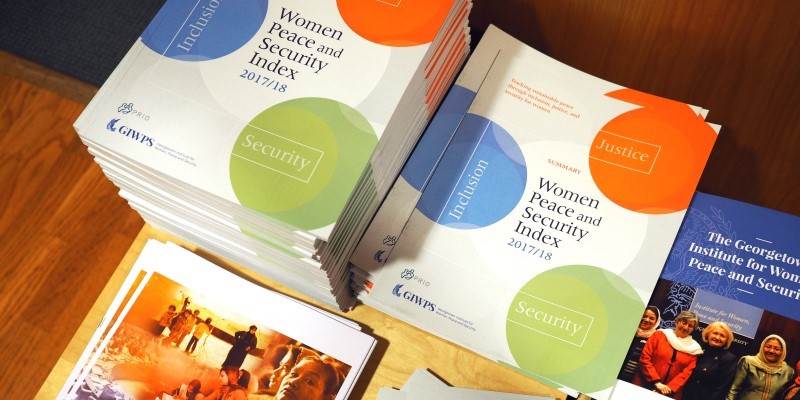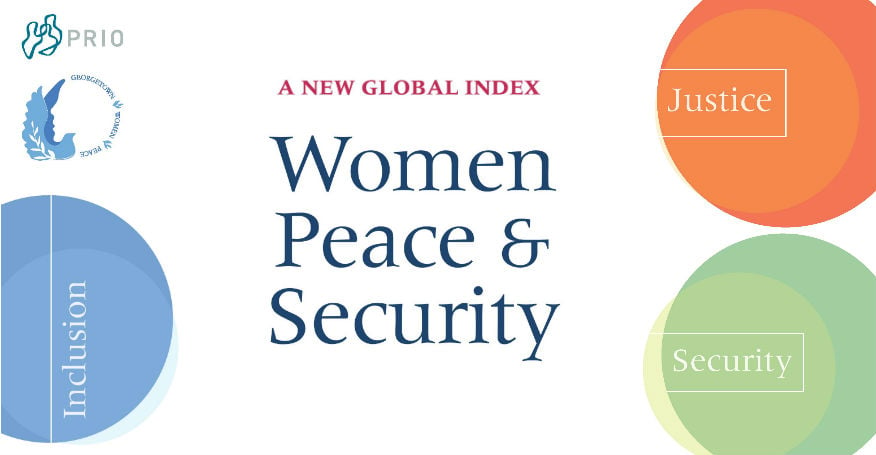The WPS index is a major innovation, bridging insights from gender and development with peace and security indices. It is structured around three basic dimensions of women’s well-being:
- inclusion (economic, social and political)
- justice (formal laws and informal discrimination)
- security (at the family, community and social levels)

UN Secretary-General's Special Representative for Sexual Violence Pramila Patten, Norway's Permanent Representative to the UN Tore Hattrem, Director of UN Women Phumzile Mlambo-Ngcuka and Head of Georgetown Institute Melanne Verveer after the launch. Photo: NorwayUN/Thea Herstad Moen.
The index ranks 153 countries and cover 93 % of the world's population. It provides a deep insight into the topic and is the most comprehensive statistics we have in regards to women, peace and security. The Norwegian Ministry of Foreign Affairs and the Bank of America Charitable Foundation funded the index that was developed by Georgetown Institute and PRIO. The plan forward for the index is to have it updated every two years. In this way, the index will not only give an insight into the current situation but also provide comparable statistics that will show countries’ development over time.
Access the index here.
A primary goal of the Index is to accelerate progress regarding both the international Women, Peace and Security agenda and the Sustainable Development Goals. This is based on the notion enshrined in the 2000 agenda established by the Security Council Resolution 1325 on Women, Peace and Security that states that women’s participation and perspectives are important to obtain sustainable peace. This concept was expanded further in the Security Council resolution on “Sustaining Peace” that complements the 2030 Agenda for Sustainable Development, which recognizes the need to build inclusive, just, and peaceful societies for all.
In a meeting at the UN headquarters in New York filled with interested representatives from member states, NGO’s and civil society, the index was launched with a panel discussion on the subject. The panel consisted of the UN Secretary-General's Special Representative for Sexual Violence Pramila Patten, Director of UN Women Phumzile Mlambo-Ngcuka, Namibia’s UN Ambassador Neville Melvin Gertze, Norway's UN Ambassador Tore Hattrem, PRIO and researchers from Georgetown Institute. .
The researchers from Georgetown introduced the methodology and science behind the index and highlighted how the results shows that there are clear links between partner violence, conflict level and women's security and inclusion in society. One of the issues that appeared frequently in the panel discussion was how the index could have a real impact on policy makers in the 153 countries represented. Several in the panel mentioned that until now there has been a lack of the statistics and analysis of data that is necessary to make the right decisions at a political level and therefore countries must prioritize research like this in their budgets.
 Tore Hattrem spoke about how individual states can use the index for policymaking. Photo: NorwayUN/Thea Herstad Moen.
Tore Hattrem spoke about how individual states can use the index for policymaking. Photo: NorwayUN/Thea Herstad Moen.
During the launch serval people pointed out that even if the comparison and ranking of countries does not yield any particular benefits, it may point the authorities of the individual countries towards competence. Countries that rank low in a field can look to countries that rank high and gain inspiration from specific measures that has worked for them. It may be particularly relevant to learn from countries in their own region that perform well in the index. The launch of the index and the reaction afterwards shows that there is a great interest for data within this field and the index has already started conversations beyond the launch. Norway’s UN Ambassador Tore Hattrem pointed out that Norway will bring the insight we have gained from this index into conversations with members of the Security Council, and the index was mentioned by other states in debates on Women, Peace and Security the day after.

